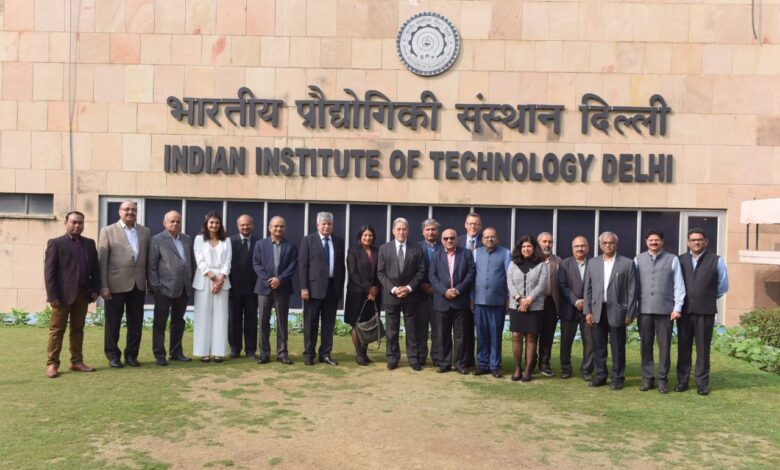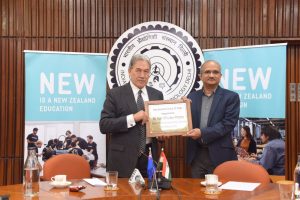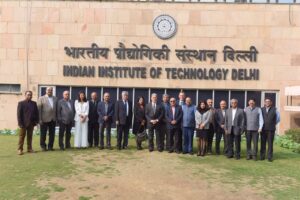New Zealand Deputy Prime Minister endorses strengthened education ties with India

Winston Peters, Deputy Prime Minister and Minister of Foreign Affairs, New Zealand officially endorsed the New Zealand Centre at IIT-Delhi and recognised the growing research connections between the New Zealand universities and IIT Delhi. The Deputy Prime Minister was accompanied on his visit to IIT Delhi by a high-ranking government delegation from New Zealand.
Earlier this month a delegation of New Zealand university academia collaborated with the Indian institution to announce the New Zealand Centre at IITD to strengthen New Zealand’s education ties with India. A memorandum was also signed in New Delhi to establish the New Zealand Centre with an aim to offer quality education as well as to increase global exposure for the students.
Speaking at the event today, New Zealand’s Deputy Prime Minister Peters said, “Education is one of the key pillars of bilateral relationship between New Zealand and India. The New Zealand Centre at IITD will seriously enhance our joint efforts in the education of science and technology.”

Speaking on the occasion, Prof V. Ramgopal Rao, Director, IIT Delhi said: “IITs are most sought after institutions when it comes to students’ higher education especially in the technology and engineering disciplines. At IIT Delhi, we are looking for more international collaborations on the research front and seeking more joint PhD programmes, joint supervision of PhD students, more research interactions on projects where we can address problems in each other’s countries through advanced technologies and development of new technologies. We are very keen to work with New Zealand universities in these areas.”
Prof Sanjeev Sanghi, Dean, AAIP said: “This visit cements the new agreement which IIT Delhi has signed with the universities of New Zealand. Many more collaborative visits, joint seminars, joint projects are expected in the near future. IIT Delhi is very pleased to take this collaboration to the next level.”
The New Zealand Centre is deemed to be a focal point of academic activity for all eight New Zealand Universities and IIT Delhi. Some of the initial projects identified as part of the academic discussion earlier this month include Medtech, Cyber Security (along with AI & Data Science), Cancer Genomics, Robotics & Automation and Waste-Water Treatment. The Centre will host visiting researchers and academicians, act as a forum for diplomatic and trade dialogue among different sectors, and support student mobility.
All eight New Zealand universities feature in the top 3% worldwide by the QS World Rankings. The participating universities for the New Zealand Centre include: The University of Auckland, AUT University, Massey University, Victoria University of Wellington, University of Waikato, Lincoln University, University of Canterbury and University of Otago.

About Education New Zealand:
Education New Zealand (ENZ) is New Zealand’s government agency for international education. ENZ works to grow awareness of New Zealand as a study destination and to support New Zealand education providers and businesses to take their services and products abroad. Information about studying in New Zealand can be found at:
About IIT Delhi:
Indian Institute of Technology (IIT) Delhi is one of the 23 IITs created to be National Centres of Excellence for training, research and development in science, engineering and technology in India. Established as College of Engineering in 1961, the Institute was later declared as an Institution of National Importance under the “Institutes of Technology (Amendment) Act, 1963” and was renamed as “Indian Institute of Technology Delhi’. Since its inception, over 50,000 students have graduated from IIT Delhi, of which more than 3500 are with a Ph.D. degree, in various disciplines including Engineering, Physical Sciences, Management and Humanities & Social Sciences. In 2018, IIT Delhi also received the special status of Institution of Eminence (IoE) by the Govt. of India, giving it greater autonomy in various matters including hiring of foreign faculty and starting collaborations with foreign institutions.




